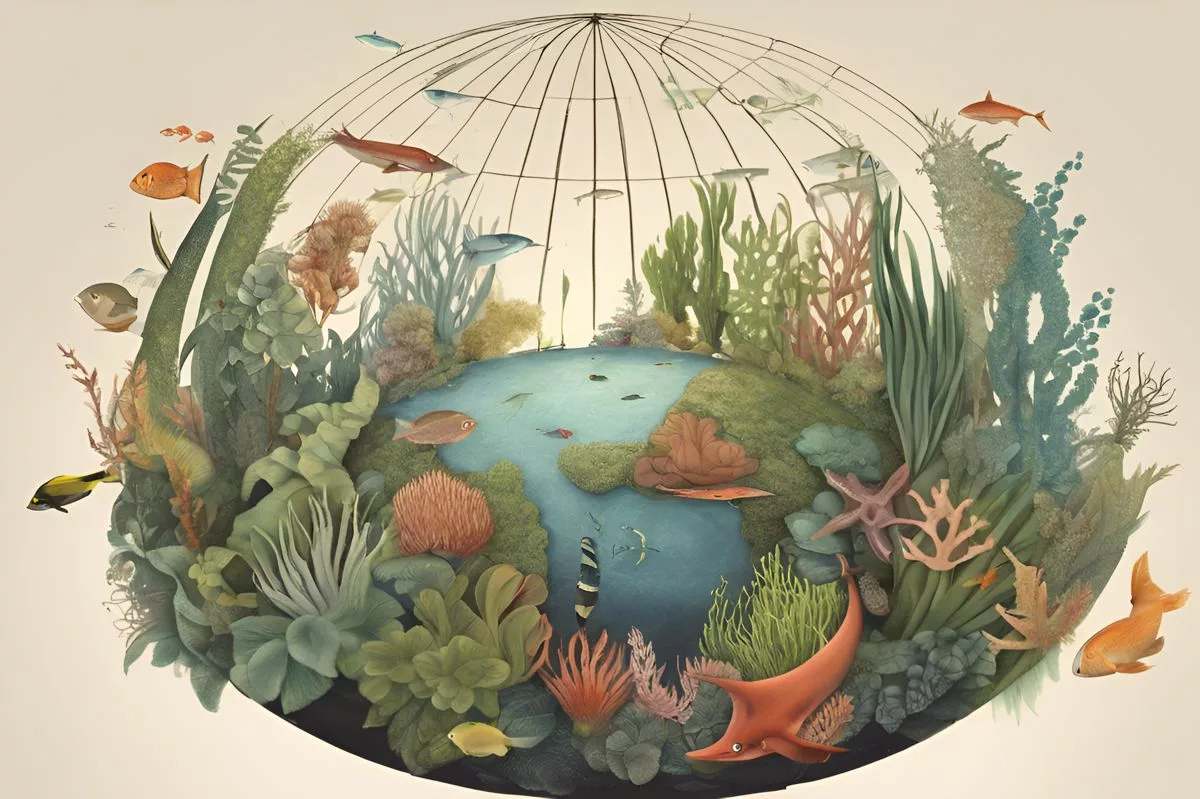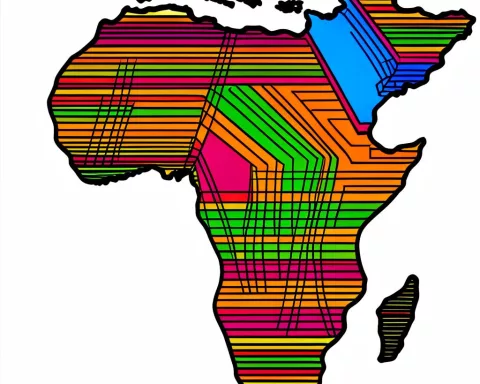Global cooperation for environmental sustainability is all about countries working together to tackle big problems like climate change, pollution, and the loss of plants and animals. Recently, leaders gathered in Rio de Janeiro to discuss how to help those who need support, especially developing countries. They talked about protecting oceans, reducing waste through recycling, and finding new ways to finance these efforts. The message was clear: if we combine our resources and ideas, we can create a healthier planet for everyone now and in the future. Together, we can make a difference!
What are the key points of global cooperation for environmental sustainability?
Global cooperation for environmental sustainability focuses on:
– Addressing climate change, biodiversity loss, and pollution.
– Prioritizing adaptation financing for developing countries.
– Promoting biodiversity conservation and sustainable ocean management.
– Implementing circular economy principles to reduce waste.
– Encouraging collective action through international forums like the G20.
The Urgency of Collective Environmental Action
In a world grappling with escalating environmental challenges, the significance of global collaboration has never been more crucial. The G20 Environment and Climate Sustainability Ministers Meeting recently convened in Rio de Janeiro, showcasing a shared dedication to tackling pressing environmental concerns. South Africa’s Minister Dion George took the stage to deliver a compelling discourse, emphasizing the urgent need for innovative solutions to the pervasive issues of climate change, biodiversity loss, and pollution that continue to affect the planet profoundly.
Minister George opened his remarks by praising Brazil for its adept leadership of the G20, particularly within the Environment and Climate Sustainability Working Group. The Brazilian government has played a pivotal role in bringing ministers from different countries together, fostering meaningful dialogue and cooperation. Within this framework, Minister George highlighted several significant global initiatives, including measures to protect oceans, the implementation of Payment for Ecosystem Services, and the advancement of a circular economy. These efforts underscore a growing recognition of the interconnected nature of ecological systems and the necessity for comprehensive strategies to safeguard them.
The impact of climate change, desertification, biodiversity loss, and pollution is both severe and widespread. To address these issues effectively, Minister George underscored the importance of adhering to the multilateral frameworks established by the United Nations. This involves balancing ambition and action across the three central pillars of the United Nations Framework Convention on Climate Change and the Paris Agreement: mitigation, adaptation, and means of implementation. Such a balanced approach is essential for making meaningful progress in the global fight against environmental challenges.
Addressing Financial and Biodiversity Challenges
A significant concern highlighted by Minister George was the need to prioritize and accelerate adaptation financing. Developing countries like South Africa often face substantial obstacles in accessing adaptation finance. Despite the urgent need for adaptation strategies, available funding falls short. Minister George advocated for a comprehensive financial model focused on outcomes to support the global climate response effectively. Bolstering institutional capacity and enhancing access to financing are crucial steps toward implementing successful adaptation initiatives.
Biodiversity conservation emerged as another focal point in Minister George’s address. He emphasized the vital role of biodiversity assets and ecological infrastructure in achieving social and economic development goals. South Africa remains committed to increasing economic incentives for conserving, restoring, and sustainably using biological resources. Market-based instruments, such as Payment for Ecosystem Services, hold promise by aligning economic interests with environmental conservation efforts.
The importance of sustainable ocean management is further underscored by South Africa’s extensive coastline and jurisdiction over a vast exclusive economic zone. Minister George highlighted South Africa’s commitment to Marine Spatial Planning legislation and the sustainable, regulated use of fishing resources. The country is also actively combating illegal fishing activities, recognizing the Oceans Economy as a valuable asset for present and future generations.
Tackling Pollution and Waste Management
Beyond marine conservation, South Africa remains actively engaged in the Inter-governmental Negotiating Committee process to develop a legally binding international instrument against plastic pollution, including in marine environments. Plastic pollution poses a growing threat to marine ecosystems, and South Africa is dedicated to finding comprehensive solutions to this challenge.
Minister George also expressed support for the G20’s initiatives on waste management and the circular economy. The principles of a circular economy, centered on reusing and recycling materials, offer a pathway toward sustainable development. By minimizing waste and promoting resource efficiency, countries can decrease their environmental footprint while fostering economic growth.
As the meeting concluded, South Africa welcomed and supported the adoption of the G20 Environment and Climate Sustainability Working Group Ministerial Declaration. This declaration is a testament to the hard work of officials from all G20 countries, led by Brazil. It serves as a blueprint for continued collaboration and action in addressing the complex environmental issues facing the world today.
A Call to Global Collaboration
Minister George’s address at the G20 meeting was not only a reaffirmation of South Africa’s commitment to environmental sustainability but also a call to action for all nations. By working together and leveraging collective resources and expertise, the global community can make significant strides toward a more sustainable and equitable future. The urgency of the challenges demands robust international cooperation, and forums like the G20 play a vital role in driving this collective effort.
Through shared commitment and innovative strategies, nations can tackle the pressing environmental issues of our time. Minister George’s vision is a world where collaborative action leads to tangible results, fostering a sustainable future for generations to come. The journey toward a greener planet may be complex, but with united efforts, significant progress is achievable.
FAQ: Global Cooperation for Environmental Sustainability
What is global cooperation for environmental sustainability?
Global cooperation for environmental sustainability involves countries working together to address major global challenges such as climate change, pollution, and biodiversity loss. This collaboration aims to create solutions that benefit both the planet and its inhabitants, particularly focusing on supporting developing nations in their environmental efforts.
Why is collective action necessary for environmental sustainability?
Collective action is crucial because environmental issues are interconnected and transcend national borders. Challenges like climate change and pollution require a unified response that combines resources, knowledge, and technology from multiple countries to create effective and sustainable solutions.
What were the key discussions at the recent G20 meeting in Rio de Janeiro?
At the G20 meeting in Rio de Janeiro, leaders discussed urgent environmental issues including climate change, biodiversity loss, and pollution. They emphasized the importance of innovative solutions, adaptation financing for developing countries, promoting sustainable ocean management, and implementing circular economy principles to reduce waste.
How does adaptation financing play a role in supporting developing countries?
Adaptation financing is critical for developing countries like South Africa, which often face barriers in accessing necessary funds for climate adaptation strategies. The G20 discussions highlighted the need for a comprehensive financial model to align economic initiatives with environmental goals, ensuring that these countries can adequately respond to climate challenges.
What initiatives are being taken to combat plastic pollution?
Countries, including South Africa, are actively participating in the development of a legally binding international instrument to combat plastic pollution, particularly in marine environments. Efforts include engaging in waste management strategies and promoting the circular economy, which focuses on recycling and reusing materials to minimize waste.
How can individuals contribute to global environmental sustainability efforts?
Individuals can contribute by adopting sustainable practices such as reducing waste, recycling, conserving water and energy, and supporting policies that promote environmental sustainability. Additionally, participating in local environmental initiatives and advocating for global cooperation can amplify individual efforts and drive collective change.












